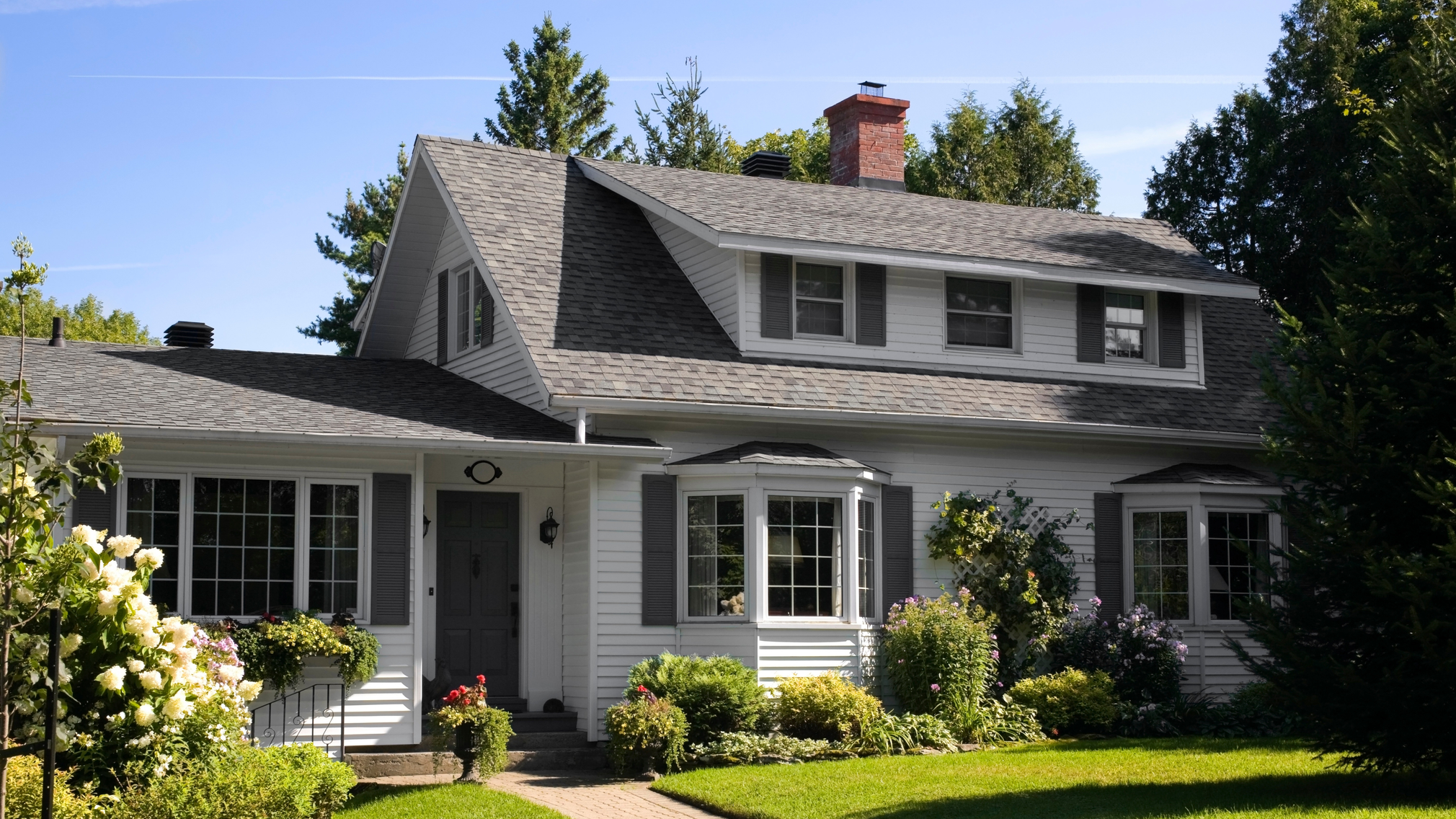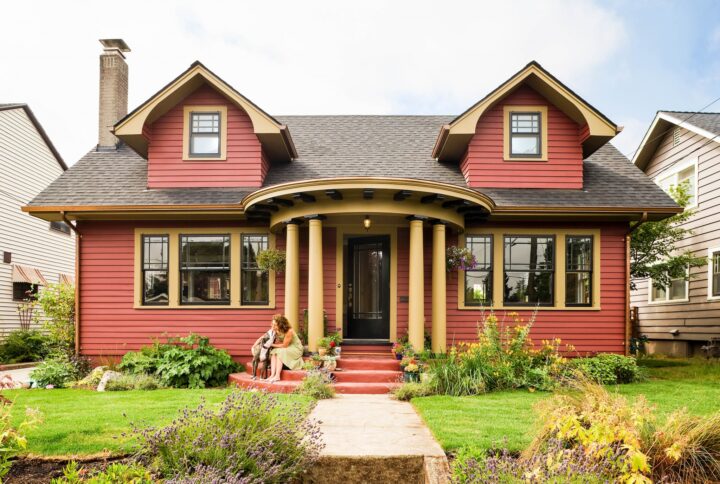Can Closing Costs Be Rolled Into Your Mortgage?


Written by Alycia Lucio on November 12, 2024
Yes, in many cases, closing costs can be included in a mortgage loan. When you include closing costs in your mortgage, you’re rolling the costs into your mortgage principal, reducing the amount of cash you need at closing. The downside is you’ll have higher monthly payments, which also means paying more interest over your loan term. Your lender can guide you through their policies around rolling closing costs into a mortgage, the rules for including closing costs in your mortgage, and which costs can be rolled in.
Explore your mortgage options and get a personalized rate with us at Zillow Home Loans*.
What are closing costs?
Closing costs are the fees and other expenses you pay upfront to finalize your home purchase. These costs include lender and third-party fees for processing and finalizing your loan, such as appraiser, origination, and title company fees. Closing costs typically range from 2% to 5% of the home’s purchase price. According to a 2024 Zillow survey, 38% of buyers did not fully expect to pay closing costs or closing fees when they started the home buying process.
Closing costs that can be roll into a mortgage
While not all closing costs can be included in a mortgage, you can typically roll the following closing costs into your mortgage loan:
- Origination fees: What the lender charges for processing and underwriting the loan.
- Mortgage points: Also known as discount points, are upfront front fees paid to lower the interest rate on the mortgage.
- Home appraisal fees: The cost to professionally evaluate the property before purchase.
- Home inspection fees: The cost to professionally check the property is up-to-code and in a good, habitable condition.
- Title insurance fees: The title company costs to ensure the title is free of issues.
- Recording fees: To cover the official recording of the new deed and mortgage documents with local government offices.
- Attorney fees: To cover any legal costs associated with the home purchase.
- Mortgage insurance premiums: Your lender may require mortgage insurance, depending on the loan you choose and your down payment amount.
Closing costs that cannot be roll into a mortgage
The closing costs you cannot roll into your mortgage include the prepaid costs, otherwise known as prepaids. Prepaids cover the future expenses of your home purchase, such as property taxes, homeowners insurance, HOA fees, mortgage interest, and escrow fees. Lenders typically require prepaids to ensure any interest that accrues between your closing date and the due date of your first mortgage payment is covered. Prepaids also serve as a way to get your escrow account ready for future disbursements.
Some lenders will include these costs in your mortgage payments and allocate their portion to an escrow account for ongoing disbursement to ensure you don’t default on your loan. The information regarding your prepaids will be clearly outlined in your Closing Disclosure. Your lender will also explain them to you, so there are no surprises.
What mortgages allow you to roll in closing costs?
You can usually roll closing costs into any type of mortgage, as long as you meet the loan’s and lender’s requirements. Here’s an overview of the most common mortgage loan requirements for rolling in closing costs:
Conventional loans
With conventional loans, the total loan amount must remain within the conforming loan limits. It must also meet the LTV requirements, usually 80% or less without private mortgage insurance (PMI), and the DTI requirements of 43% or lower.
FHA loans
With FHA loans, the total loan amount must remain within the FHA loan limits. It must also meet the LTV requirements of 97% or less without a mortgage insurance premium (MIP) and the DTI requirements of 43% or less. Some lenders will allow up to 50% DTI.
VA loans
The only closing cost you can roll into your loan with VA loans is the VA funding fee. Additionally, VA loans often don’t have maximum LTV ratio requirements, but the DTI ratio requirements are typically 41% or less. Eligible borrowers, such as those with a service-related disability, may also be exempt from the funding fee.
USDA loans
With USDA loans, the home’s appraisal value must not exceed the sale price, and a DTI ratio of 41% or less is preferred. The closing costs can also not exceed those charged by other government-backed loans, such as FHA and VA loans.
Jumbo loans
Lender policies regarding rolling in closing costs for jumbo loans vary. Typically, lenders require an LTV of no greater than 80% and a DTI of no greater than 43%.
How to roll closing costs into your mortgage
Speak with your lender
Each lender has different policies and requirements regarding rolling closing costs into a mortgage. You’ll first want to speak with your lender to ensure they allow it, and find out if you meet their requirements.
Calculate the costs
Next, you’ll want to determine how rolling in your closing costs will affect your mortgage costs. Once you roll in the eligible closing costs, they become part of your borrowing amount, affecting your LTV and DTI ratio and your APR and interest rate. In turn, this will increase your monthly payment amount.
Consider lender credits
Some lenders may offer credits (money toward closing costs) to borrowers in exchange for a higher interest rate. This option may come with better interest rates or a lower monthly payment than what you would get if you rolled your closing costs into your loan. Before making the decision, see what credits your lender offers, and compare it with the option of rolling costs into the loan.
Get approval
If you decide to roll in your closing costs, your lender will need to approve you for the higher loan amount. This may require additional underwriting and documentation to ensure you meet their LTV and DTI requirements.
Is it a good idea to roll closing costs into your mortgage?
While rolling closing costs into a mortgage can help you save cash upfront, it affects two crucial financial ratios that lenders use to evaluate loan applications — your debt-to-income ratio (DTI) and your loan-to-value ratio (LTV).
Loan-to-value ratio
LTV represents the percentage of the home's value that you're borrowing. Adding closing costs to your loan increases the loan amount, increasing the LTV ratio. Most lenders have maximum LTV limits, ranging from 80% to 97%, depending on the type of loan. If rolling in closing costs pushes your LTV over this limit, you may have to pay for mortgage insurance, or you may not be approved for the loan.
Debt-to-income ratio
DTI compares your monthly debt payments to your monthly income. A higher loan amount due to rolled-in closing costs will increase your monthly mortgage payment, potentially raising your DTI. Lenders usually prefer a DTI of 43% or lower for most mortgage programs. If rolling in closing costs pushes your DTI too high, you might not qualify for the loan.
When it comes to budgeting for a home, closing costs are something to keep in mind. See how much you pre-qualify to borrow with us at Zillow Home Loans* to get an early estimate of your loan costs based on your financial criteria. From there, you can quickly calculate what your closing costs may look like, so you can start planning and budgeting appropriately.
*An equal housing lender. NMLS #10287
Tags
How much home can you afford?
At Zillow Home Loans, we can pre-qualify you in as little as 5 minutes, with no impact to your credit score.
Zillow Home Loans, NMLS # 10287. Equal Housing Lender
Get pre-qualifiedHow much home can you afford?
See what's in reach with low down payment options, no hidden fees and step-by-step guidance from us at
Zillow Home Loans.
Zillow Home Loans, NMLS # 10287. Equal Housing Lender
Calculate your BuyAbility℠
Related Articles
Get a mortgage with Zillow Home Loans
Go from dreaming to owning with low down payment options, competitive rates and no hidden fees. A dedicated loan officer will guide you until you have your keys in hand.

Zillow Home Loans, NMLS #10287. Equal Housing Lender.



